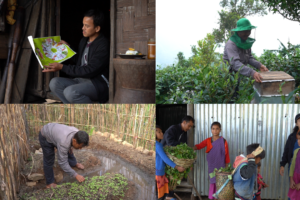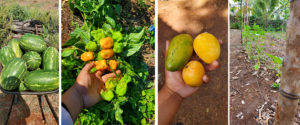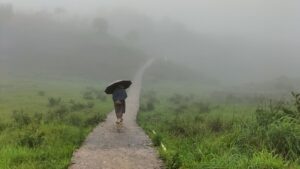Originally published: Committee on World Food Security CFS44

“Give a girl the right shoes, and she can conquer the world” is a popular saying by Marilyn Monroe.
How about we give a woman the right tools so she can fix this world? It’s worth a try.
Today at one of the CFS44 side events, the panelists were discussing the role of women for better food security and nutrition. It’s an ugly truth that women, still, face injustice and insecurities in many parts of the world. “Rural women’s role, often remain undervalued by policymakers” pointed out Karim Hussein from GFRAS. Their roles are limited and they have little or no say at all in important decision-making process. To begin with, they face constraints in their homes, decision making at a bigger level is just out of the question, for now. As Agusdin Pulungan shared, “Women can become champions when women have the strong role in the decision-making process”.
But is this really a man’s world?
I come from Meghalaya which is a matriarchal and matrilineal society. No, we don’t say that women are superior to men. But both men and women have certain roles to play and they work together for the wellbeing of the family and community. Most importantly, we agree that women are the feeders and nurturers. They are the legal custodians of the land, the biodiversity, and the children. They take care of the food systems and the traditional knowledge that has been passed down by our ancestors. In the context of food, generally, women are also the safeguards of seeds which is important for sowing the future. In general, these respected roles translate into a respect for the equal rights of women and girls in the local communities.
Now that is the story of a single society. But is it a different story for the non-matriarchal societies? Let’s take a look.
A focus of today’s discussion was on access, “the key issue in addressing women’s empowerment”. Equal access to education, innovation, development in agricultural practices, being able to be independent, can create a pathway to women’s empowerment. “Rural women need access to finance and markets,” said Margaret Munene from Palm House Dairies.
Another consideration is the link between gender inequality and food insecurity. More and better data are required to understand the barriers that women and girls face. But it has been shown that countries with greater gender equality are more prosperous and competitive.
For some of the matriarchal values to take hold in these countries, is important to recognize women as the agents of change, and that men can also have an important role to contribute towards gender equality, by actively making a space for empowerment. Providing knowledge and important information to women on the ground can bring results. Mr. Hussein remarked that offering gender-sensitive services in ICTs and agriculture, and human resources tailored to build the capacity of women are some things that can be done differently.
So, what would a woman do, if she were given the chance? Give her respect and the right tools and she can become an agent of change!



